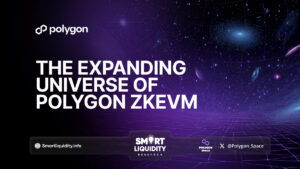Layer 2 Solutions for NFTs on the Polygon Network


The rise of non-fungible tokens (NFTs) has transformed the digital landscape, creating unique opportunities for artists and collectors. However, high transaction fees and scalability issues on Ethereum have prompted the search for more efficient alternatives. Enter Polygon, a Layer 2 scaling solution that addresses these challenges while enhancing the NFT experience.
Firstly, Polygon offers lower transaction fees compared to Ethereum. This reduction is crucial for NFT creators and buyers, as it allows them to mint, buy, and sell tokens without worrying about exorbitant costs. Additionally, Polygon’s Layer 2 solutions increase transaction speeds significantly. While Ethereum can take several minutes to confirm a transaction, Polygon often processes them in seconds. This efficiency is particularly beneficial for the fast-paced NFT market, where timing can be everything.
Moreover, the user experience on Polygon is notably smoother. Users can seamlessly transfer their assets between Ethereum and Polygon, making it easier to tap into the vast ecosystem of NFT marketplaces. Consequently, this interoperability fosters greater collaboration among creators, collectors, and platforms, expanding the NFT landscape even further.
Furthermore, the security features of Polygon cannot be overlooked. It utilizes a robust proof-of-stake mechanism, ensuring that transactions remain secure while benefiting from the Ethereum network’s overall security. Therefore, creators can confidently mint and sell their NFTs, knowing that their work is protected.
In summary, Layer 2 solutions on the Polygon network not only enhance the NFT experience by providing lower fees and faster transactions but also improve user accessibility and security. As the NFT space continues to evolve, Polygon stands out as a vital player in making digital art and collectibles more accessible to everyone. Thus, embracing these solutions could pave the way for a more inclusive NFT ecosystem.




